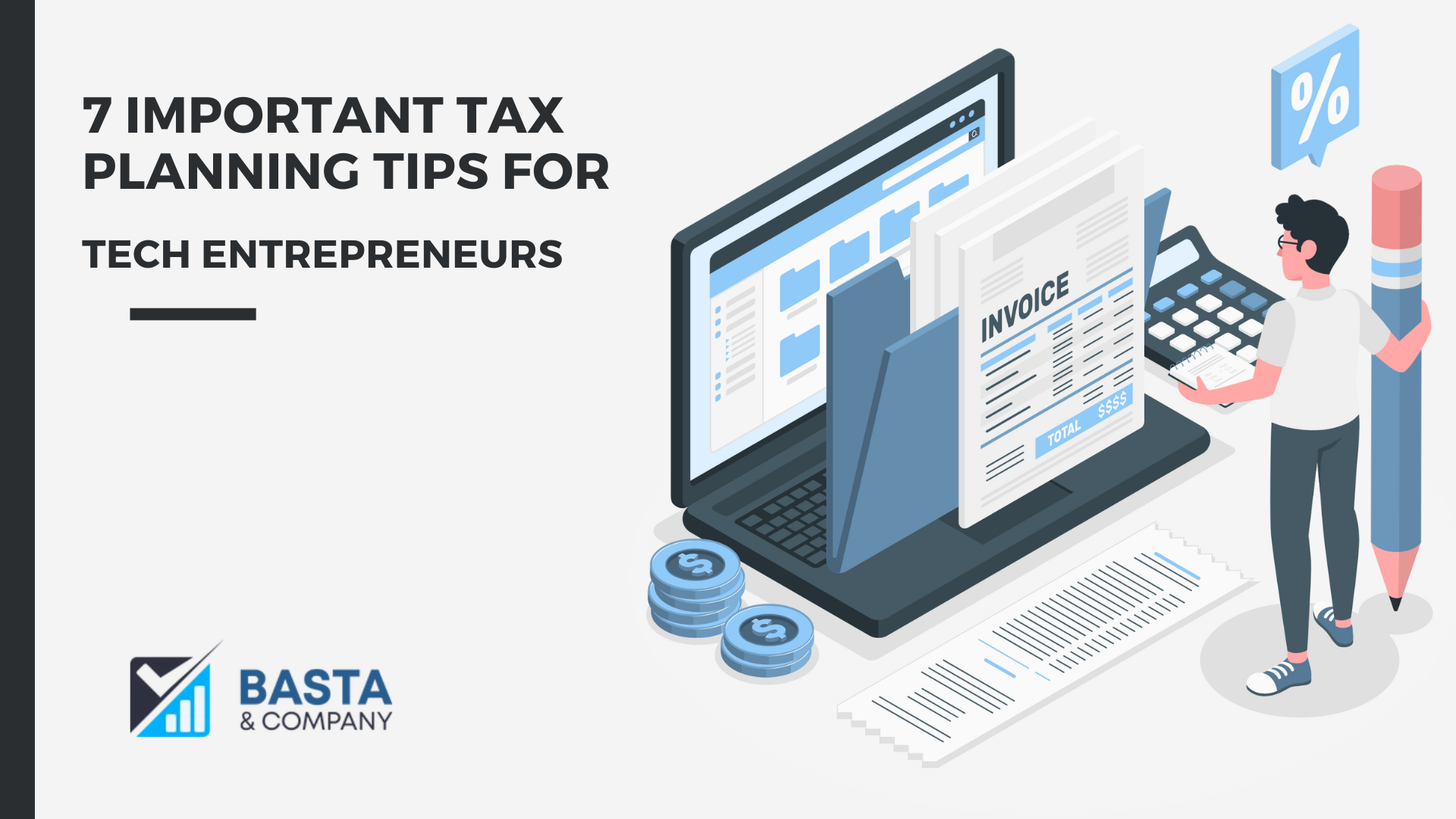
7 Important Tax Planning Tips for Tech Entrepreneurs
Webmaster • October 11th, 2023
The world of a San Francisco tech entrepreneur revolves around technology and innovation. Staying aware of the latest tech trends, drafting business strategies, and ensuring continuity of operations. But that’s not all! As an entrepreneur, you have to think about the tax liability of the company and plan accordingly. If not, you might end up in a financial mess or tax catastrophe. A robust tax plan ensures that you pay exactly what you owe and on time. You can always hire a professional, like a tech company CFO who can walk you through the do’s and don’ts. Nevertheless, it helps if you are aware of the tax planning basics. Let’s walk you through those.
How to Plan Your Taxes?
I regularly work with several tech entrepreneurs in San Francisco, helping them with their tax obligations. Here are a few tips derived from those experiences.
If it’s a start-up, the first and foremost decision is choosing a suitable business structure. Whether it’s a partnership, limited liability company (LLC), or corporation, the right structure will have significant tax implications on the business. For instance, if you form an LLC or corporation it offers you liability protection along with more favorable tax treatment in specific situations.
Tech entrepreneurs often qualify for various tax credits and incentives that are aimed at promoting innovation. For instance, R&D tax credits help offset some of your expenses related to research and development. Some states and local jurisdictions offer tax incentives, like tax breaks and grants to tech startups. You must research these opportunities and take full advantage of them. If you hire a tech company CFO service, they can help you with that as well.
One of the thumb-rules of tax planning is maintaining a set of financial records that is detailed and accurate. It is quite essential for proper tax planning. You should track all your income, expenses, and deductions throughout the year. Such good and detailed record-keeping not only helps you comply with tax regulations but also ensures you don’t miss out on any potential deductions or credits.
Tech entrepreneurs can benefit from a range of deductions and expenses, reducing overall taxable income. Some common deductions are:
– Home office expenses – If you work from home, you maybe eligible to deduct a portion of your rent or mortgage, utilities, and other home-related expenses.
– Business-related travel and meal expenses – Expenses incurred from business-related travel or meals might be deductible.
– Equipment and software costs – The cost of tech equipment, software, and other tools essential to your business might be deductible (valid for the year they were purchased).
There are other costs that you can deduct. A tax professional can help you better. For further help, you can connect with our team.
Tech entrepreneurs should take advantage of retirement plans like a Simplified Employee Pension (SEP) IRA or a solo 401(k). These plans allow you to save for retirement while also providing potential tax benefits. Contributions made to these retirement accounts are typically tax-deductible, reducing your taxable income.
Tech entrepreneurs often operate in multiple states, which can complicate their tax situation. Different states have varying tax laws and regulations, so it’s essential to understand how your business activities may affect your state tax liability. Some states have no income tax, while others have high rates. You might need to consider sales tax obligations if you sell products or services across state lines.
Tax laws are complex and continually evolving. To ensure you are making the best tax decisions for your tech startup, I advise you to consult a qualified tax professional or CPA who specializes in working with entrepreneurs. You can also hire a tech company CFO service in San Francisco. They offer personalized guidance and help you navigate tax changes while ensuring you are compliant with all tax regulations.
On a Concluding Note
It’s essential to remember that tax planning is an ongoing process. So, you should stay informed about tax changes and opportunities. That is the key to your financial success as a tech entrepreneur. For more information or hands-on help with tax planning, contact our team at Basta & Company.

Samy Basta brings you more than 20 years experience in tax, financial, and business consulting to his role as founder of Basta & Company. His focus is primarily strategic business planning, empowering clients to set priorities, focus energy and resources, and strengthen operations. In addition, Samy and his firm provide strategic counsel, and technical insight, on a wide range of needs, including tax saving strategies, tax return compliance, as well as choice of entity.